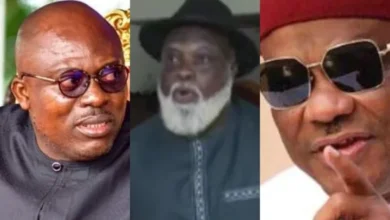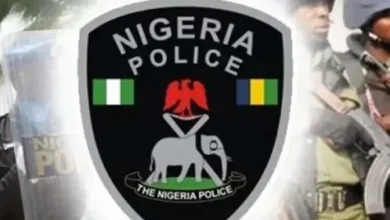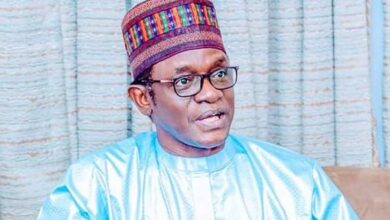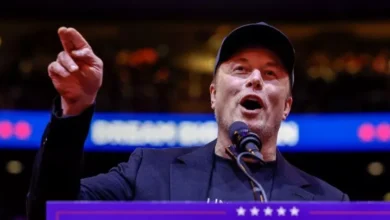Malema slams UK over visa denial ahead of Cambridge conference

Julius Malema has accused the British government of silencing dissent after his visa application was denied.
According to reports, the South African opposition leader has planned to speak in the UK on May 10, 2025.
Malema was scheduled to address the Africa Together Conference at the University of Cambridge.
He said the UK offered no substantial justification for blocking his entry.
Malema leads the Economic Freedom Fighters (EFF), known for its radical leftist stance.
He accused British authorities of attempting to suppress alternative political views.
In a post on his official X platform (formerly Twitter), he said:
“The British authorities have denied me a visa to London for the Cambridge Conference this weekend, providing no substantial justification.
“It is clear to me that this is an attempt to silence a dissenting political perspective.
“We are currently at the OR airport, as we were promised that everything would be sorted by 15:30.
“Instead, we received a regret letter just four hours before our departure. This is unacceptable and spineless.”
The UK High Commission in South Africa has also confirmed delays in visa processing.
A leaked letter from High Commissioner Antony Phillipson blamed timing and UK public holidays.
He personally apologized to EFF leadership for the failed application.
Phillipson acknowledged the application was filed early and priority services were paid for.
He said the Home Office would refund the application fee.
The EFF accused the UK of deliberately stalling the process to block Malema’s speech.
The party said the visa delay was a “coordinated move” to avoid airing dissenting views in Britain.
The UK Home Office refused to comment on the specific case.
Malema is widely known for opposing Western influence in Africa.
He has called for the nationalization of land and resources in South Africa.
His fiery rhetoric often targets former colonial powers and global economic institutions.
The EFF said Malema intended to address inequality, African sovereignty, and youth leadership in Cambridge.
Critics argue that Malema’s brand of politics is polarizing and confrontational.
Supporters view him as a bold voice for economic justice in post-apartheid South Africa.
Phillipson said he monitored the situation personally over the past week.
He emphasized that the delay was procedural, not political.
Malema and his party remain unconvinced by the explanation.
They say the move fits a broader pattern of suppressing African voices on global platforms.
The UK had a public holiday on 5 May, cited as a factor in the delay.
The visa issue has sparked backlash from activists and international observers.
Post Views: 48





